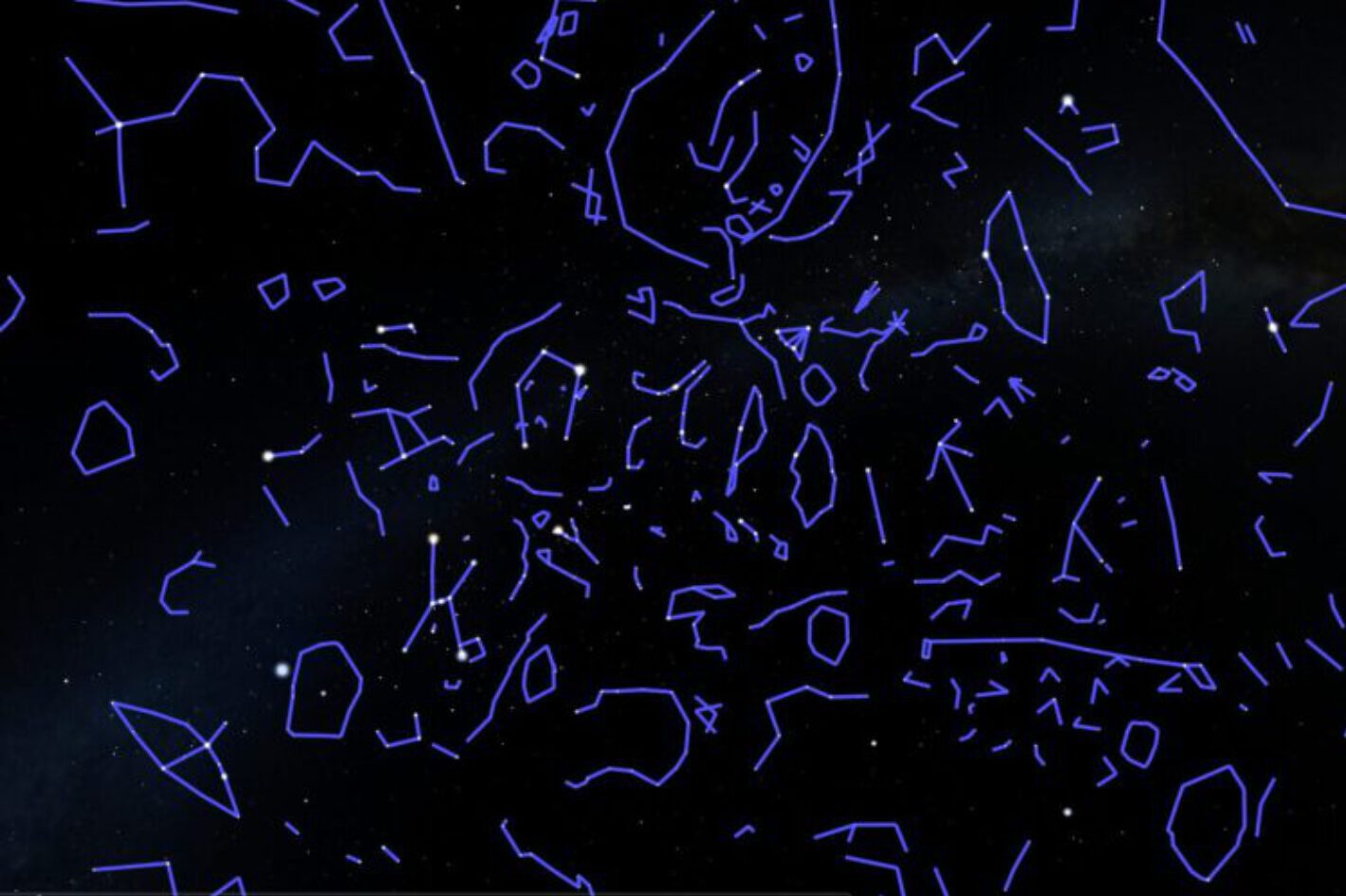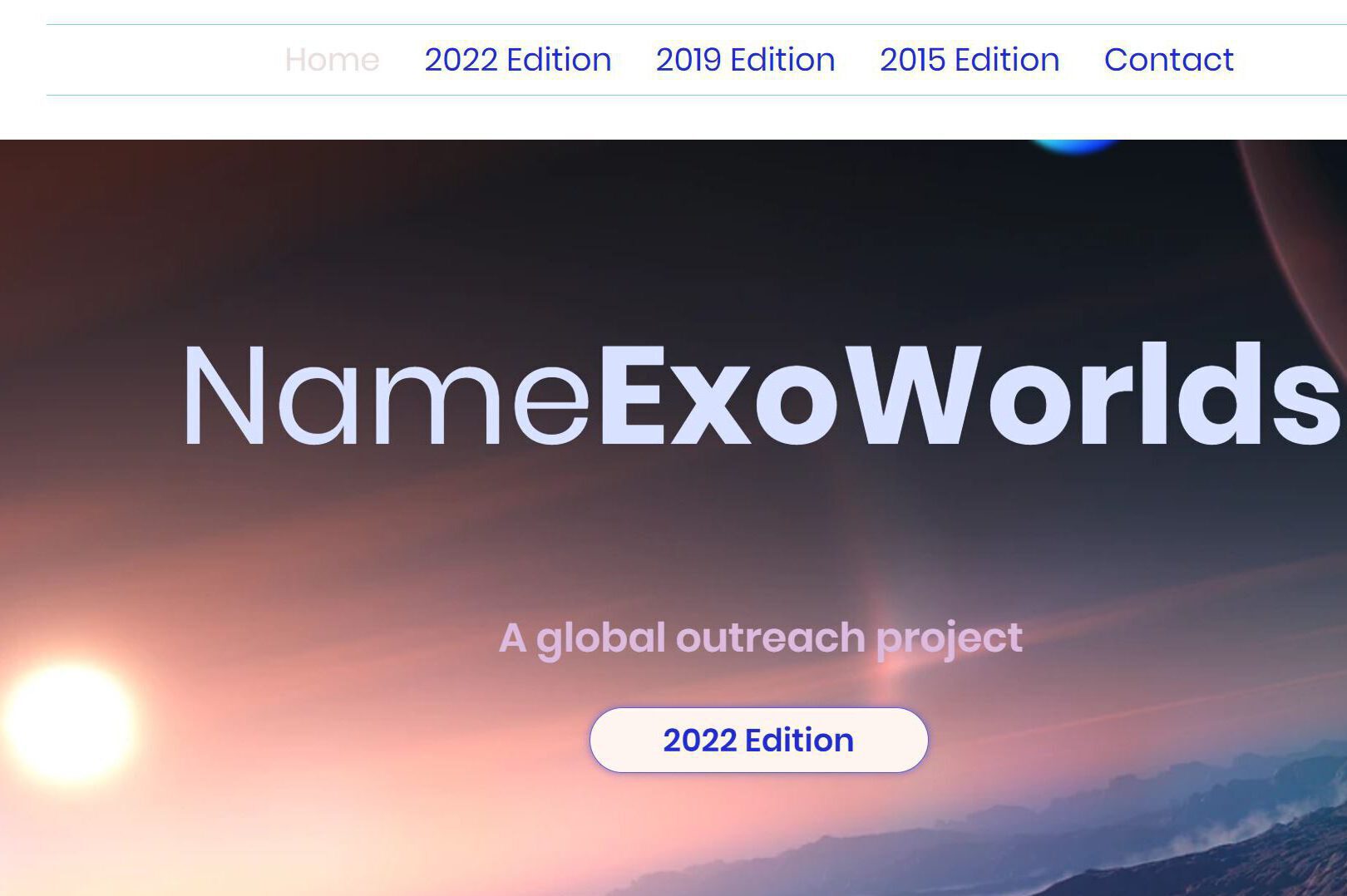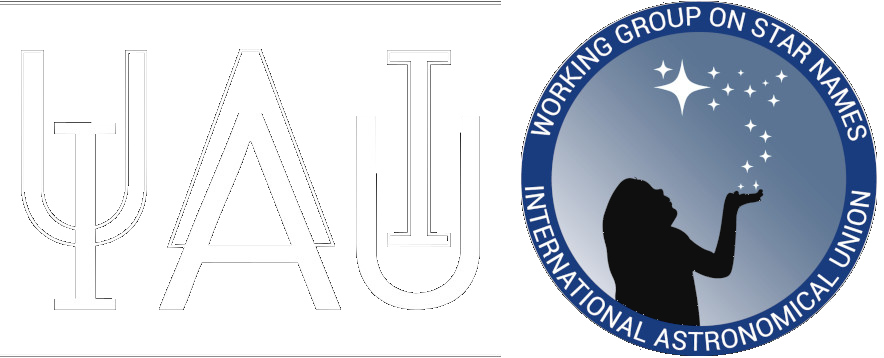Steps towards Adoption of a Star Name
What needs to be done before a star names is official.
Provide Cultural Information
Write up a lemma page in our “All Skies Encyclopaedia” (ASE) following the schema: Concordance/ History/ Etymology (subdivided into the sections Origin and Transfer+Transformation), Mythology/ Religion, IAU WGSN Discussion. Don’t forget to mention the references while writing up, their list will be automatically added at the end.
Trace History
If the lemma concerns
(a) a star name, then please provide the HIP numbers of the stars to which it was applied in the past.
(b) a constellation name (constellations cover an area, and, thus, more than one star), please draw a stick figure in the “Sky Culture Maker” (SCM), take a screenshot and include it into the ASE lemma.
Identify and Suggest Stars to be Named
The SCM will automatically compute the constellation area and extract all stars from our Naked Eye (star) Catalog (NEC) inside the boundaries. Please include this star list in the ASE: it is sorted by brightness and IAU-star names are mentioned in it, so that the brightest/ faintest nameless star can easily be determined.
In the section “IAU WGSN Discussion”, please mention the star(s) that you suggest to be named and prioritise your suggestion(s).
Tell the Chair
Please notify the chair of WGSN that the topic will be scheduled.
She will check the provided information for completeness and schedule the topic for a group discussion.
The group will check if the proposal complies to the guidelines.
Checks
Monthly meetings are “peer-reviewing”: we expect all participants to have read the information provided in the ASE (and internally, if given) and to ask questions to the author for its improvement.
Also, we ask the group for objections against the name (to avoid that it is offensive or misleading in another language and avoid confusion with other IAU-names), and for possible counterproposals from other cultures. If necessary, we organise meetings in subgroups to work out what name goes to what star.
In case of more than one proposal, judges based on the “Axis of Merits”.
After Adoption
If the name is adopted,
(a) the lemma page in our “All Skies Encyclopaedia” (ASE) is updated with the Category “IAU-Star Name” and the constellation.
(b) our Catalog of Star Names (CSN) is updated with information on the etymology of the star. This counts as “date of adoption”.
(c) our Social Media Agent produces two info cards on astrophysics and cultural information on the star and its new name. These are released on our social media channels and published in the ASE, too.
History

Initial Phase (2014-2018)
Initially, from 2015 to 2018, WGSN collected star names that are in common use already. The main goal was approval of one (among many) spelling variants.
It was a process accompanying the public IAU “NameExoWorlds”-Campaigns (NEWC).
During this venture, the IAU was faced with a gap in standard nomenclature of stars and WGSN was established to deal with some conflicting suggestions of names from different cultures. As a consequence of the observed challenges and lack of profound collections (missing references, intentional or accidental spelling mistakes etc.), WGSN developed “Guidelines”, released in the Triennial Report 2018, and the strategy to reserve the stars brighter than 6.5 mag for traditional cultural names and leave only fainter stars for the NEWCs.

Motivation and Trigger (2019-2022)
In 2019, the IAU celebrated their Centennial. A NameExoWorlds Campaign was carried out with the goal to let each (UN-recognised) nation name one planetary system. Organised with national committees and web-based systems for global suggestions and votings on names (by the public), but final decision left to a small dedicated team.
This contributed largely to the learning phase, e.g. decisions were made that names should follow themes per planetary system.
In 2022, the IAU OAO team that organized the third NEWC decided to ban naming stars after people. Due to several more requests in the same year and the foreseeable political explosiveness of such naming, we decided to avoid epoynomous star names from now on. Great people can be honored in the night sky by naming lunar craters or asteroids after them. Stars, however, should never bear official proper names of people.

Monthly Discussions: Case-by-Case
In 2023, we decided that we won’t change the released names (even when proven erroneous) to avoid confusion. However, we will explain the mistake & give the correct version in our etymology website and our “All Skies Encyclopaedia” (project start 2024, release 2025).
We created a Naked Eye (star) Catalog (NEC).
We created an internal collation repository, held monthly meetings to discuss name suggestions and, by this, developed a workflow and applied and adjusted our “Axes of Merits” that aims to help decide for one out of several suggestions of names for a star.
In 2025, we published the WGSN-Guidelines.
Historical Infos
1
Guidelines 2018
! In case of Indigenous names from living ethnic groups, these groups need to grant their permission for the use of their cultural heritage on a global scale. !
* Names should be pronounceable in some language.
* Names should be non-offensive.
* Names should not be too similar to an existing name of a star, planet, planetary satellite, or minor planet.
* Names of all individuals are prohibited for bright stars, except for rare cases with demonstrated historical precedence and widespread international diffusion. Contrived names are discouraged, except for rare cases with demonstrated historical precedence and widespread international diffusion.
* Names of events principally known for political or military activities are prohibited.
* Names of a purely or principally commercial nature are prohibited.
* Names of pet animals are prohibited.
* Acronyms, or names based on acronyms, are prohibited for proper names (acronyms could be confused with designations).
* Adopted names will follow The IAU Style Manual (Wilkins 1989). Proper names are transliterated to Latin alphabet, have an initial capitalized letter, and never contain numbers. Punctuation marks are discouraged. The names will be reported in Latin alphabet, but names may be quoted with original accents and diacritic marks where appropriate.
* The WGSN explicitly recognizes the names of exoplanets and their host stars approved by the EC WG Public Naming of Planets and Planetary Satellites (Montmerle et al. 2016).
2
Work Strategy 2024/25
In the future, IAU WGSN naming will proceed according to the following strategy:
(1) We create a collection of names of historical and indigenous constellations, their celestial areas, and their etymologies.
(2) Stars that are visible to the naked eye (brighter 6.5 mag in V) will be given names of Indigenous or obsolete historical constellations or asterisms.
(3) Only stars fainter than Vmag=6.5 are considered for the suggestions from Naming Campaigns.
For the naming of naked-eye stars, we develop a scoring system and release the names after consensus within our group. To this end, the group has virtual monthly meetings and a (internally tracked, documented) mail discussion. The procedure to suggest a star name is, therefore:
* Creating an entry for the name in the encyclopaedia. There, all the spelling variants, identification variants / shifts over time, etymology and provenances are collected and references are given.
* When put on the discussion agenda, there needs to be a suggestion what star exactly is suggested to name with this name, why, and what alternatives might be possible.
* All group members are asked to read the ASE entry, double-check in their field of knowledge if there are any reasons to reject the suggestion (might that be due to an existing name in another culture that we don’t yet have in our collection, or due the name being offensive in some language/ culture).
* The group will discuss all potential problems and arguments, consider potential political issues to the best of their knowledge and as far as foreseeable.
* If there are other cultures which might have named the same star or asterism, we need to work out in balancing discussions based on the scoring system, what star gets what name. In some cases, this could be done in one meeting, in other cases, it may take half a year with more references consulted and many e-mails exchanged back and forth by some members or subgroup(s).
